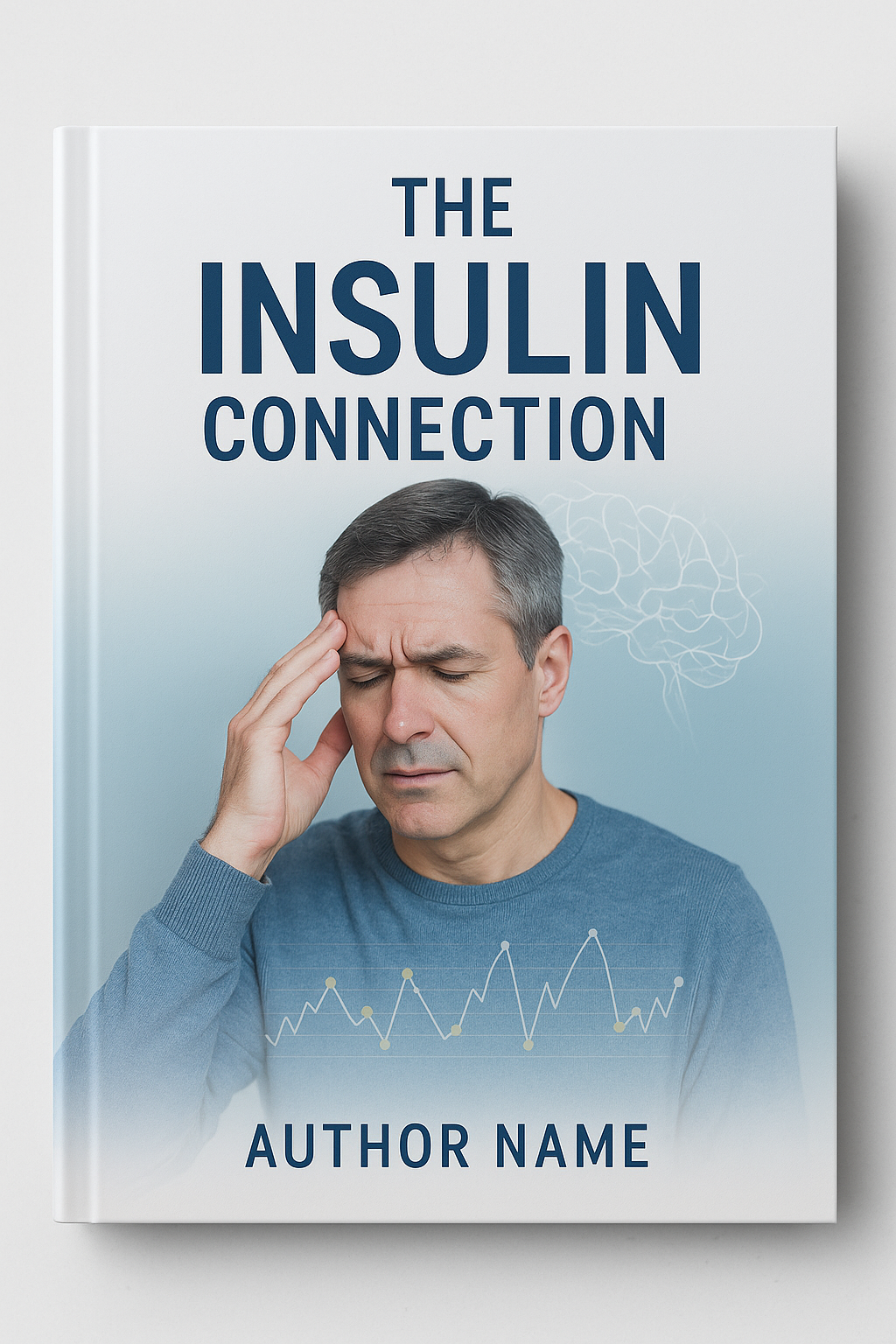The Hidden Link Between Brain Fog and Insulin Resistance

When Your Mind Feels Cloudy, Your Blood Sugar Might Be to Blame
If you’ve ever felt like your brain was “in a fog”—struggling to focus, recall details, or process information—it’s tempting to chalk it up to stress, lack of sleep, or aging. While those factors certainly play a role, there’s another cause that often flies under the radar: insulin resistance.
At Sheen Vein (Aesthetics and Functional Medicine) here in St. Louis, we see brain fog as more than just an annoyance—it’s a sign your brain’s fuel supply may not be working as it should. And in many patients, the culprit is poor blood sugar regulation.
Understanding Insulin Resistance
Insulin is a hormone produced by your pancreas that acts like a key, unlocking your cells so they can take in glucose (sugar) from your bloodstream for energy.
In insulin resistance, your cells don’t respond as well to insulin. The pancreas tries to compensate by producing more insulin, but over time, blood sugar levels start to climb. This condition is a precursor to type 2 diabetes and is also linked to weight gain, inflammation, and cardiovascular risk.
What many people don’t realize is that insulin resistance doesn’t just affect your waistline or lab results—it can directly impair brain function.
How Insulin Resistance Impacts Brain Health
1. Reduced Glucose Delivery to Brain Cells
Your brain runs primarily on glucose. When insulin resistance develops, glucose has a harder time getting into your neurons. This can starve brain cells of fuel, leading to slow thinking, difficulty concentrating, and memory issues.
2. Increased Inflammation
Insulin resistance is associated with chronic low-grade inflammation throughout the body, including the brain. Inflammation in the brain (neuroinflammation) can disrupt communication between neurons, making mental processing less efficient.
3. Disrupted Neurotransmitter Balance
Insulin helps regulate important brain chemicals like dopamine and acetylcholine. When insulin signaling is impaired, these neurotransmitters can become imbalanced, contributing to fatigue, mood changes, and cognitive sluggishness.
4. Higher Risk for Neurodegenerative Changes
Over time, insulin resistance is linked to a higher risk of Alzheimer’s disease, sometimes referred to as “type 3 diabetes” due to its connection with impaired glucose metabolism in the brain.
Signs Your Brain Fog Might Be Related to Blood Sugar
- Mental fatigue or “hitting a wall” after meals
- Difficulty focusing in the mid-afternoon
- Feeling irritable or shaky when you go too long without eating
- Craving sweets or refined carbs for quick energy
- Frequent headaches or dizziness after high-carb meals
These patterns often suggest that your brain is experiencing energy swings tied to unstable blood sugar control.
How Functional Medicine Addresses the Root Cause
At Sheen Vein (Aesthetics and Functional Medicine), we take a comprehensive approach to brain fog by identifying whether insulin resistance or other metabolic imbalances are at play. Our process typically involves:
1. Advanced Lab Testing
We check fasting insulin, HbA1c, fasting glucose, and—in some cases—continuous glucose monitoring. These give us a more complete picture than glucose testing alone.
2. Nutrition for Stable Blood Sugar
We work with patients to adopt a nutrient-dense, whole-food eating plan that balances protein, healthy fats, and slow-digesting carbohydrates. This helps prevent post-meal spikes and crashes that can worsen brain fog.
3. Strategic Meal Timing
For some patients, incorporating intermittent fasting or adjusting meal frequency can improve insulin sensitivity and reduce mental sluggishness.
4. Exercise to Improve Glucose Uptake
Muscle activity is one of the most powerful ways to improve insulin sensitivity. Even short bouts of strength training or brisk walking after meals can make a difference.
5. Addressing Sleep and Stress
Poor sleep and chronic stress both raise cortisol levels, which can worsen insulin resistance. We incorporate stress reduction techniques and sleep optimization into every plan.
Real-World Patient Results
We’ve seen patients who came to us convinced their brain fog was due to aging—but after testing, we discovered significant insulin resistance. By stabilizing blood sugar through diet, exercise, and targeted supplementation, they reported sharper thinking, improved mood, and better energy—often within weeks.
One St. Louis patient in her early 50s described it best: “It’s like someone turned the lights back on in my head.”
Why Early Action Matters
Brain fog caused by insulin resistance is reversible in many cases—but if left unchecked, it can progress to permanent cognitive decline. The sooner we identify and correct the problem, the greater the potential for full recovery of mental clarity and prevention of long-term complications.
Clear Your Mind by Balancing Your Blood Sugar
If you’re struggling with persistent brain fog, don’t assume it’s just part of getting older. Your blood sugar balance could be the missing piece. At Sheen Vein (Aesthetics and Functional Medicine) in St. Louis, we use advanced testing and personalized plans to restore both metabolic and brain health.
Schedule your consultation today and find out if insulin resistance could be clouding your thinking. Together, we can help you feel sharper, more focused, and energized again.